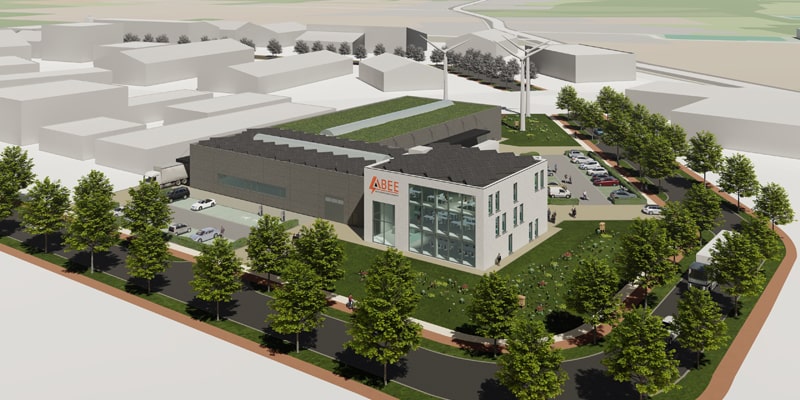ABEE to build battery factory for EVs in Romania
Belgian company Avesta Battery and Energy Engineering (ABEE) is building a battery cell factory in Romania that will mainly supply cells for the automotive industry. ABEE is investing 1.4 billion euros in the cell factory called Romvolt, which will be located in Galați in eastern Romania.
The company claims that up to 8,000 jobs will be created there. An annual production capacity of 22 GWh is planned from completion in 2026, but the plant will also produce cells for stationary batteries. In a second phase by the end of this decade, another 200 million euros will be invested to build a recycling plant at the site with a capacity of 50,000 tonnes per year.
The cells will primarily be supplied to the carmakers Renault-Dacia and Ford, which are also based in Romania. Dacia has its only electric vehicle model, the Spring, built in China and recently announced the premiere of an electric Sandero for 2027 or 2028, which would fit in with the targeted start of production at ABEE. Ford operates a vehicle plant in Craiova, Romania. Already confirmed is the production of the E-Transit Courier panel van and the E-Tourneo Courier. In addition, an electric version of the Ford Puma, also built in Craiova, is to follow in 2024. The only thing is that the reports do not yet contain any confirmation from the two carmakers that they actually intend to purchase battery cells from ABEE.
Especially since there are other ambiguities: The mayor of Galați, Ionuţ Pucheanu, that the local authorities would still have to process “several requests” to finalise the deal for Romvolt. In other words, the final agreement has obviously not yet been signed. However, the company has the support of politicians: both the Belgian Prime Minister Alexander De Croo and the Romanian Minister for Economy, Entrepreneurship and Tourism Ștefan Radu Oprea came to the press conference.
Galati is located in the east of the country, directly at the border triangle with the Republic of Moldova and Ukraine. The Danube flows directly past the city, and the free trade zone has its own port.
There are no details yet on the type of battery cells to be built in Romania. If Dacia is to be supplied, the cells will be very cheap, as the carmaker had recently repeatedly emphasised that it wanted to offer not the best, but the cheapest electric car.
ABEE itself apparently does not only want to focus on low-cost battery cells: At the end of March, the company announced plans for a research and development centre for solid-state battery cells in the Portuguese city of Figueira da Foz. A pilot production facility with a capacity of 0.5 to 1 GWh is also to be built there. However, it is still a declaration of intent. The plans in northern Macedonia are more concrete: ABEE announced a new production facility for battery management systems there in May. However, potential customers were not named.
ABEE was founded in 2019 by former university professor Noshin Omar as a consulting engineering company. As the company itself states, it has started researching “all aspects of battery life in parallel, from cell production to battery packaging systems to the final step, recycling”. ABEE’s website also states that the company will focus on “research and development in the field of BMS and power electronics systems as well as mass production of the same”. The announcement of the production plant in northern Macedonia fits in with this. How ABEE came to have its own capital-intensive cell production within a few months is not clear from the reports.
balkangreenenergynews.com, romaniajornal.ro (both Romania), abeegroup.com (Portugal), abeegroup.com (North Macedonia)





0 Comments